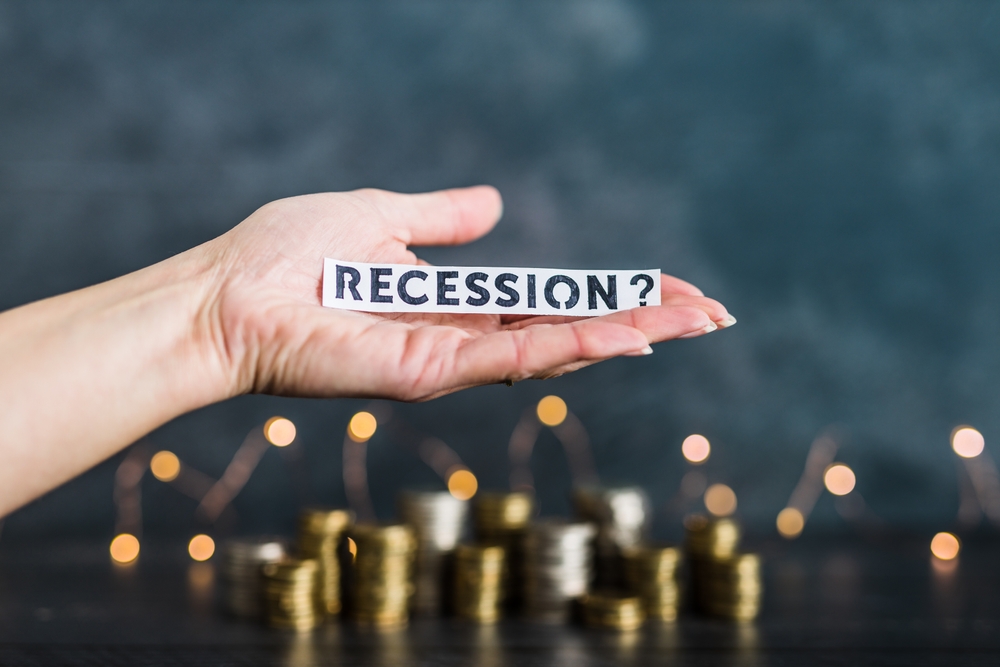It is usually seen that value stocks usually outperform growth stocks during a recession, this is because companies with strong fundamentals, good business models, high recurring revenue, and robust balance sheet are less sensitive to economic downturns.
Rising Interest rates, inflation and recession concerns have been sizzling topics in the financial world for almost a year now. Economists and financial professionals are still in a great semantic debate over whether major economies are headed for recession or not.
Recently, we saw Europe’s largest economy Germany landing in recession. As Germany has landed into recession as countries across the world are apprehensive to meet the same fate and are leaving no stone unturned to save themselves from this threat. A recession is when a country sees two consecutive quarters of negative gross domestic product (GDP).
When it comes to individuals, there are certain dos and don’ts which they should follow whenever there is an economic downturn. There is no harm in being a little more cautious when you know that the global economy is passing through a difficult time.
In this article, we will discuss a few investment tips which you should follow during a recession.
Investment Tips During A Recession:
When In Recession Cash Is King
It is usually believed that is king during a recession. As companies lay off their employees and adopt other cost-cutting measures it is better to be safe than feel sorry afterwards. So beef up cash reserves to meet such situations. However, there is a catch here as some individuals start selling their good investments to get cash in anticipation that there will be a recession. This premature selling can put you in losses as you might get trapped in cash if the market suddenly rises.
Prefer investing in defensive stocks over growth stocks
Consumer discretionary stocks tend to fare well when there are recession concerns. It is generally seen that defensive stocks such as consumer staples stocks are not as vulnerable to ups and downs as growth stocks like tech stocks are. When in recession, defensive stocks can help protect your portfolio.
Companies that are providers of essential goods and services like food, electricity (and) shelter are generally non-cyclical and thus they are less exposed to economic cycles.
Sales of consumer staples—food, beverages & household products—are considered recession-proof because no matter what the economic situation is, people manage to take care of basic needs like they need to eat well, and buy soap, shampoo and other essentials.
Invest in Quality Assets
Investors are mostly advised to look for quality across various asset classes to protect a portfolio during an economic downturn. Two important characteristics of quality investments are high return on investments (ROI) and low leverage.
Companies with strong fundamentals, good business models, high recurring revenue, and robust balance sheet are less sensitive to economic downturns.
Avoid investing in companies with high debt loads because they will find it difficult to service their debt if revenues and cash flows decline.
Stay Away From Growth Stocks
Growth stocks have historically not fared well during a recession. Growth stocks, mainly profitless companies which are tied to high growth prospects, do not perform well during recessions. Investors should instead invest in stocks having a good history of dividend payment. Many see tech stocks as an example of growth stocks. Rising interest rates can play an important role in taking an economy into recession.
It is usually seen that IT Companies usually do not fare well when interest rates are rising due to the valuation pressure. High-interest rates increase the costs of borrowing and this is usually unfavourable for high-growth tech companies, which look for expansion and thus burn a lot of cash.
Besides, when interest rates are rising investors look at bonds as safer investments, and thus in such conditions we see a lot of money rotating from the tech sector into the bond market as yields rise.
Consider Actively Managed Funds, Bonds and Uncorrelated Assets
For fund investors, it is recommended to shift to more actively managed funds when in recession.
Data shows that most actively managed funds outperformed their peers during economic downturns.
Meanwhile, Bonds also tend to perform well during recessions. However, again there is a catch here. Stay away from rising defaults and try to stick to investment-grade bonds. Besides, truly uncorrelated asset classes, like insurance-linked securities and carbon credits, may be safer compared to traditional asset classes when the economy is in recession.







